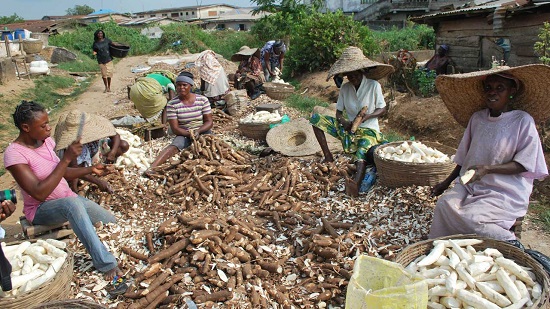This post has already been read 2435 times!
By Torinmo Salau
When Nigeria’s Minister of Agriculture and Rural Development, Chief Audu Ogbeh, launched the National Gender Action Plan (NGAP) on Agriculture in October, the idea was to upgrade women from the realm of subsistence farming to medium-scale and commercial farming.
The figures provided by the minister at the launch showed that Nigeria had 95% subsistence farmers, 50% of whom were women. Beyond this, women farmers in Nigeria had to contend with unequal access to land, insecurity, cultural practices and pseudo-religious dogmas.
Harping on the same challenge, Nigeria Country Director, African Development Bank, Mr Ousmane Dore, had said, “Despite the huge labour investment of women, productivity is low and they often have limited roles in decision making on the farms. Lack of ownership of land and other productive assets due to existing social norms has created a significant negative impact on the family income and the nation’s GDP at large.”
The Permanent Secretary, Federal Ministry of Agriculture and Rural Development, Sunny Echono, had also said “women are the focal point of agricultural production, processing, marketing and utilisation in the country.
“Women supply 70 per cent of agricultural labour; 50 per cent of animal husbandry related activities and 60 per cent of food processing, yet they have access to only 20 per cent of available agricultural resources.”
Some of the major constraints to women in agriculture include lack of funding, lack of access to government support, agricultural loans and grants and especially limited access to land. Women are estimated to own less than 10% of farmland, which is abysmal because land ownership influences capital and labour. Land ownership by women in our society is restricted because of cultural beliefs, thereby decreasing their turnover rate in the agricultural sector of the economy.

A large number of women are not educated and consequently do not have the basic knowledge required to access foreign grants at their disposal. “Many women farmers lack education and experience of how the agricultural business is growing and evolving. A lot of them are not even aware of the technological changes disrupting the industry,” said Mrs Amede Olisa-Achingla, CEO of Bosaz Foods.
Director of Extension Service in the Federal Ministry of Agriculture, Mrs Karima Babaginda, stated that the National Gender Plan on Agriculture (NGAP) is a framework for positive action which aims to ensure that current sector policies yield concrete results each year. It also aims to outline rural programmes and actions required for maximising the potential of many farmers, including women practitioners in agriculture.
But women farmers say they do not receive any form of support from the government, especially extension services from the ministries of agriculture.
“The responsibility of the extension service workers is to inspect the farms, farm inputs such as fertilisers, and ensure that crops are not infected,” said Ms Yinka Alabi, a vegetable farmer.

The Pan African Rural Women Assembly had also challenged heads of states in the Economic Community of West African States (ECOWAS) to take action regarding the issue of women land rights in all the countries in the sub-region. The women farmers stated that if land rights of women were not implemented, eradicating poverty from Africa would remain a dream.
Lack of access to land for women farmers is not just a Nigerian issue; it spans across Africa. Women in the Beti of Southern Cameroon cannot inherit land. They are given food plots by their husbands but they are not permitted to plant cash crops. In Zambia, if a woman’s marital relationship is dissolved, the land reverts to the lineage and she has only a limited claim on the land.
Many women do not have access to land due to local customs, and lack of education acts as a barrier even in countries such as Ethiopia and Botswana which have reformed their land ownership systems to embrace more women.
“Despite the significant contribution of women to agriculture, less than 20 per cent of women farmers own their own land. We are the first victims of land and related natural resources grabbing. All this threatens the capacity of communities to meet the whole challenges in the agricultural and food systems,” said the chairperson of the group, Mrs Nnnena Ejim.
“Direct right to land ownership and land use decision-making power is not enough if women still struggle with access to funding, farm implements and extension services,” she added.



